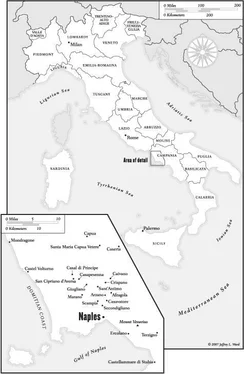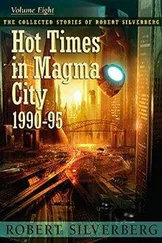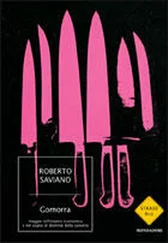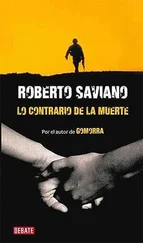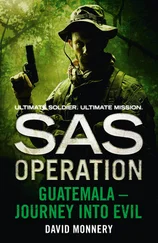Roberto Saviano - Gomorrah - A Personal Journey into the Violent International Empire of Naples’ Organized Crime System
Здесь есть возможность читать онлайн «Roberto Saviano - Gomorrah - A Personal Journey into the Violent International Empire of Naples’ Organized Crime System» весь текст электронной книги совершенно бесплатно (целиком полную версию без сокращений). В некоторых случаях можно слушать аудио, скачать через торрент в формате fb2 и присутствует краткое содержание. Жанр: Старинная литература, на английском языке. Описание произведения, (предисловие) а так же отзывы посетителей доступны на портале библиотеки ЛибКат.
- Название:Gomorrah: A Personal Journey into the Violent International Empire of Naples’ Organized Crime System
- Автор:
- Жанр:
- Год:неизвестен
- ISBN:нет данных
- Рейтинг книги:5 / 5. Голосов: 1
-
Избранное:Добавить в избранное
- Отзывы:
-
Ваша оценка:
- 100
- 1
- 2
- 3
- 4
- 5
Gomorrah: A Personal Journey into the Violent International Empire of Naples’ Organized Crime System: краткое содержание, описание и аннотация
Предлагаем к чтению аннотацию, описание, краткое содержание или предисловие (зависит от того, что написал сам автор книги «Gomorrah: A Personal Journey into the Violent International Empire of Naples’ Organized Crime System»). Если вы не нашли необходимую информацию о книге — напишите в комментариях, мы постараемся отыскать её.
Gomorrah: A Personal Journey into the Violent International Empire of Naples’ Organized Crime System — читать онлайн бесплатно полную книгу (весь текст) целиком
Ниже представлен текст книги, разбитый по страницам. Система сохранения места последней прочитанной страницы, позволяет с удобством читать онлайн бесплатно книгу «Gomorrah: A Personal Journey into the Violent International Empire of Naples’ Organized Crime System», без необходимости каждый раз заново искать на чём Вы остановились. Поставьте закладку, и сможете в любой момент перейти на страницу, на которой закончили чтение.
Интервал:
Закладка:
The church is packed by now. The police and carabinieri are still nervous, though. I don’t understand. They’re agitated and restless and lose patience over nothing. I walk away from the church and then I understand. A carabinieri car is separating the funeral crowd from a group of well-heeled individuals astride expensive motorcycles, in convertibles, or on powerful scooters. They are the last members of the Giuliano clan, the Salvatore loyalists. The carabinieri fear a confrontation—all hell would break lose. Luckily nothing happens, but their presence is deeply symbolic. A declaration that no one can dominate the center of Naples without their approval or at least without their mediation. They show everyone that they’re there and that, in spite of everything, they’re still the capos.
The white casket emerges from the church, the crowd presses in to touch it, people faint, bestial cries shatter my eardrums. When the coffin passes below Annalisa’s house, her mother, who couldn’t bring herself to attend the church service, tries to hurl herself off the balcony. She flounders and shouts, her face red and swollen. A group of women hold her back. The usual tragic scene unfolds. Let me be quite clear—the ritual weeping and shows of sorrow are not fictions or falsehoods. Quite the opposite. Yet they reveal the confines in which most Neapolitan women still live, in which they are forced to appeal to strong symbolic behavior to express their grief and make it recognizable to the entire community. This frenetic suffering, although terribly real, maintains the characteristics of a Neapolitan melodrama.
The journalists keep their distance. Antonio Bassolino and Rosa Russo Iervolino—the president of the region of Campania and the mayor of Naples—are terrified; they fear the neighborhood could rise up against them. But it doesn’t: the people of Forcella have learned how to take advantage of politics and don’t want to make any enemies. Some people applaud the forces of law and order, causing a few journalists to get excited: carabinieri cheered in the neighborhood of the Camorra. What naïveté. That applause was a provocation. Better the carabinieri than the Giulianos is what it said. Some camera crews try to collect eyewitness accounts; they approach a fragile-looking elderly woman who grabs the microphone right away and shouts, “It’s their fault … my son will do fifty years behind bars! Assassins!” The hatred toward the pentiti is well known. The crowd presses in, tension runs high. Realizing that a girl is dead because she decided to listen to music with her girlfriends at the entranceway to her apartment building one spring evening makes your stomach turn. I feel nauseous. I have to keep calm. I have to understand—if that is even possible. Annalisa was born into and lived in this world. Her girlfriends had told her about motorcycle rides with clan boys, and maybe she would have fallen in love with some handsome, rich prince who would have made a career in the System, or maybe with some good old boy who would have broken his back all day long for peanuts. Maybe her destiny was to work in an underground purse factory, ten hours a day for 500 euros a month. Annalisa was moved by the stained skin of the leather workers and had written in her diary, “The girls who make purses always have black hands, and are shut up in the factory all day long. My sister Manu’s there as well, but at least her boss doesn’t make her work when she doesn’t feel well.” Annalisa has become a tragic symbol because the tragedy ended in its most terrible and essential aspect: murder. But here there is not a minute in which the business of living does not seem like a life sentence, a penalty that must be paid for by a wild, fast, and fierce existence. Annalisa is guilty of having been born in Naples. Nothing more, nothing less. As her body is being carried away in its white coffin, a classmate calls her cell phone. The ringing on the coffin is the new requiem. Musical tones, a sweet melody. No one answers.
PART TWO
KALASHNIKOV
I ran my finger over it. I even closed my eyes as I traced the entire length from top to bottom, my fingernail catching on the holes, some of which were big enough for my whole fingertip to fit in. I touched all the windows this way. First slowly, then quickly, frantically running my hand every which way over the surface, as if my finger were a crazed worm roaming across the glass, climbing in and out of furrows and burrowing into the holes. Until I got cut. A sudden, sharp pain. I opened my eyes. My finger left a watery reddish purple trail across the glass, and the hole was filled with blood. I stopped acting like an idiot and began sucking my wound.
The holes that AK-47s make in bullet-resistant glass are perfect. They dig fiercely like woodworms gnawing tunnels. Seen from a distance, the shots create a strange effect, as if tiny bubbles had formed between the layers of polyurethane, in the heart of the glass. Hardly any shopkeeper replaces his windows once they have been sprayed with bullets. Some inject silicone into the cracks or cover them with black tape, but most just leave them the way they are. A bullet-resistant shop window can cost up to 5,000 euros, so it’s better to stick with the violent decorations. Besides, there’s a chance they’ll lure curious customers who stop and ask what happened, chat with the owner, and maybe even buy a little something extra in the end. Rather than replace the damaged windows, they wait until they implode from the next burst of gunfire. At that point insurance will cover the cost, because if the owner gets there first thing in the morning and makes all the merchandise disappear, the spray from an assault rifle is labeled a robbery.
A shop window shooting is not always an intimidation, a message written in bullets, so much as a necessity. When a new shipment of AK-47s arrive, they have to be tested, to make sure they don’t jam. The Camorra could try them out in peace in the countryside, shoot at old cars, or buy some sheet metal to blow to pieces. But no. They fire at stores—windows, doors, metal shutters—a reminder that there is nothing that does not potentially belong to them, and that everything is really granted by them, part of the economy they alone control. A momentary concession, nothing more, something that can be withdrawn at any time. There’s also a side benefit: the local glass companies with the best prices on replacement windows are all related to the clan; the more broken glass, the more money they make.
Thirty or so AK-47s had arrived the night before from Eastern Europe. From Macedonia. Skopje to Gricignano d’Aversa, a quick, easy trip that filled the Camorra garages with firepower. As soon as the Iron Curtain fell, Camorra members met with leaders of the crumbling Communist parties. They sat at the bargaining table representing the powerful, capable, and silent West. Aware of the crisis, the clans informally acquired entire arms depots from Eastern European countries—Romania, Poland, the former Yugoslavia—paying for years the salaries of the custodians, guards, and officials in charge of maintaining their military resources. In short, the clan financed a part of those countries’ defense. It turns out that the best way to hide weapons is to keep them in barracks. With Eastern Europe’s arms depots at their disposal, bosses didn’t have to depend on the black market, even when there were leadership turnovers, internal feuds, and crises. This time the weapons had been loaded onto military trucks stolen from American garages. Thanks to the writing on the side, the trucks moved about freely in Italy. The U.S. Navy base in Gricignano d’Aversa is a small and inaccessible colossus, a column of reinforced concrete dropped into the middle of a plain. Built by the Coppolas, like everything else around here. You almost never see the Americans. Checkpoints are rare. Military trucks have complete liberty, so when they pulled into town, the drivers even stopped in the piazza for breakfast, asking around at the bar where they could find “a couple of immigrants to do some quick unloading” as they dunked croissants in their cappuccino. And everyone knows what “quick” means. Crates of guns are only a little heavier than crates of tomatoes, and the African kids who want to do a little overtime after their shifts in the fields get paid 2 euros a crate, four times what they make moving tomatoes or apples.
Читать дальшеИнтервал:
Закладка:
Похожие книги на «Gomorrah: A Personal Journey into the Violent International Empire of Naples’ Organized Crime System»
Представляем Вашему вниманию похожие книги на «Gomorrah: A Personal Journey into the Violent International Empire of Naples’ Organized Crime System» списком для выбора. Мы отобрали схожую по названию и смыслу литературу в надежде предоставить читателям больше вариантов отыскать новые, интересные, ещё непрочитанные произведения.
Обсуждение, отзывы о книге «Gomorrah: A Personal Journey into the Violent International Empire of Naples’ Organized Crime System» и просто собственные мнения читателей. Оставьте ваши комментарии, напишите, что Вы думаете о произведении, его смысле или главных героях. Укажите что конкретно понравилось, а что нет, и почему Вы так считаете.
